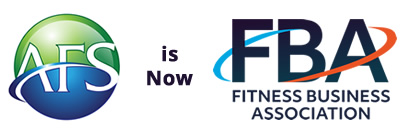
By Mike Jesowshek, Special FBA Contributor
Most business owners when they hear the word tax they think about tax filing when they should first think about tax planning.
Do not get me wrong, tax filing is important and required by law. However, it is simply taking information, after the year is over, and sending it to the federal and state agencies. Tax planning is something that is done throughout the year and tax filing happens at the end.
What Is Tax Planning?
Tax planning is the concept of learning about tax strategies and implementing them in your business and personal life throughout the entire year. Most tax strategies get thrown out the door once the clock strikes January 1st.
The tax law was written the way it was for a reason, it is our job as business owners to learn and understand the advantages the US government has given us and utilize it as much as legally possible.
Tax planning is available for business owners of all shapes and sizes. Whether you are making $5,000 a year in your business or $5MM there are tax strategies available to you. Accountants like to make you think that tax planning is complicated and only for the rich but it is not.
Finally, tax planning is NOT simply buying things you do not need. Tax planning is looking at spending that you may already be doing and finding a business purpose to move it from after-tax spending to pre-tax spending.
What Are Pre-Tax vs After-Tax Dollars?
- After-Tax Dollars: Money you spend after it has been taxed.
- As a W2 employee, you have your gross wages and then all of these taxes are taken out and whatever is left over gets deposited to you as your take-home pay. Your take-home pay is "after-tax" dollars.
- If you work from a home office or go out a buy a new desk and chair, you use after-tax dollars for that and get no tax deduction.
- Pre-Tax Dollars: Spending done prior to the money being taxed.
- As a business owner, you have your sales or revenue and then all of your expenses that offset it and whatever is left over (your profit) is then taxed.
- Take that same example as above but now you are a business owner. You can get a partial deduction for that home office. You get a tax deduction for the desk and chair you bought.
Spending you do within the business is considered pre-tax, you are spending dollars prior to them being taxed. This is an incredible advantage that business owners have. We want you to always be strategizing on how you can find after-tax dollars that can be moved to pre-tax dollars.
Within the day-to-day life of your small business, you will incur ordinary and necessary expenses that you can deduct when filing your taxes. Basically, an ordinary and necessary expense means that it is typical in your line of work and appropriate or helpful for your business. Helpful to find new clients, keep current clients, get talent, retain talent, maintain day-to-day operations, etc.
How Can I Pay Less Taxes in 2023?
Step 1: Start Learning About Tax Strategies
- Listen, Read or Watch the Small Business Tax Savings Podcast weekly. This Podcast was built for YOU! All of my time and effort goes into ensuring small business owners like you are aware of the tax strategies that are available and this Podcast serves as my tool to deliver that. Listen weekly.
Step 2: Implement, Implement, Implement
- Learning never stops but you need to do more than learn, you need to implement. If you find a topic that really resonates with you, put it on your to-do to act on it while it is fresh in your mind.
Here's my promise to you. If you start learning and thinking about tax planning here, mid-2023, you will be setting yourself up for success to make 2023 the year you pay the least amount in taxes as legally possible.
Mike Jesowshek, CPA is the founder of the accounting firm IncSight. Mike has a strong passion for both fitness and technology as his firm helps provide digital accounting, bookkeeping, and tax solutions for studio and gym owners. With clients all over the U.S., his goal is to help these businesses pay the least amount of taxes as legally possible while helping them grow personally and professionally.


Join the Conversation!